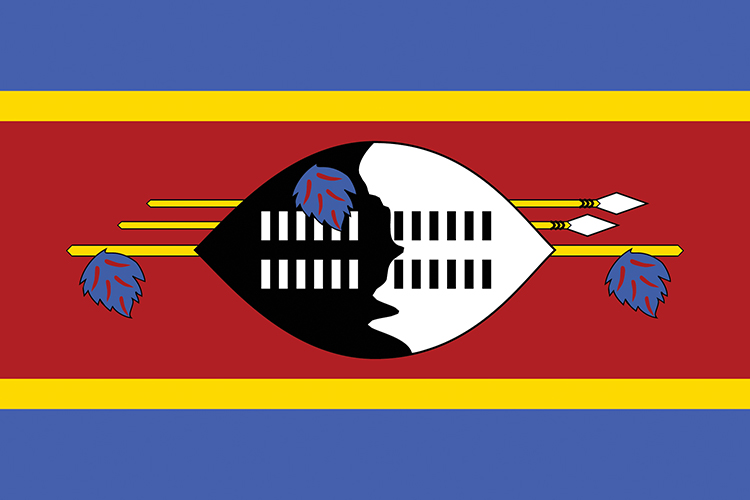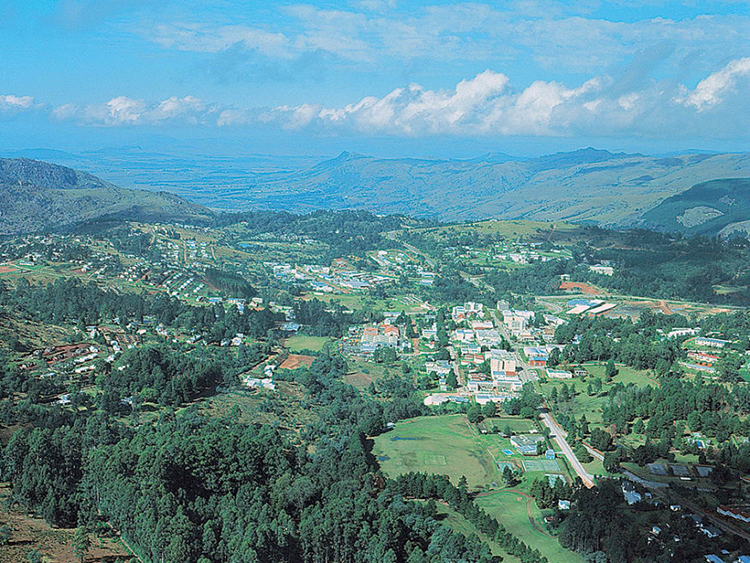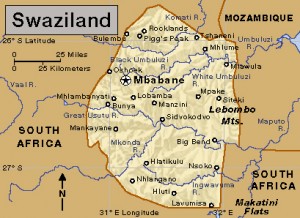Swaziland 50
Thursday, September 6th, 2018September 6, 2018
Today, the small southern African nation of Swaziland celebrates its golden jubilee, the 50th anniversary of Swazi independence on Sept. 6, 1968. Swaziland, nestled between Mozambique and the Republic of South Africa, was formerly a British protectorate. It became independent in 1968 as the Kingdom of Swaziland, and the nation remains a monarchy. Today in Mbabane, the Swazi capital, anniversary celebrations were muted amid an ongoing economic crisis in the country.

Swaziland’s flag has five horizontal stripes. The top and bottom stripes are blue (for peace). The wide center stripe is red (for past battles) with a black and white shield, spears, and staff. Between the blue and red stripes are yellow stripes (for natural resources). Credit: © Loveshop/Shutterstock
Despite the crisis, Swaziland’s King Mswati III began celebrating the nation’s 50th anniversary with his own 50th birthday party on April 19, 2018. Mswati’s “50/50 Celebrations” showcased Swazi culture and traditions, as well as the king’s own immense personal wealth. During the party, he suggested renaming the kingdom eSwatini, the nation’s original name before it was anglicized to Swaziland. The name eSwatini means land of the Swazis in the local siSwati language.
Protests and criticism of the king’s lavish lifestyle led him to cancel expensive anniversary celebrations planned for September. Most Swazi people are poor, surviving almost entirely on what they can grow or raise through subsistence agriculture.
The vast majority of Swaziland’s people belong to the Swazi ethnic group. According to the legends of the Swazi, their ancestors once lived near what is now Maputo, Mozambique. In the late 1700′s, the Swazi chief Ngwane II led a small band of people over the mountains to what is now southeastern Swaziland. There the Swazi found other African peoples. Ngwane II and the chiefs who ruled after him united several of these peoples with the Swazi.

Mbabane, the administrative capital of Swaziland, lies in the country’s western highlands. Most of the people of Swaziland live in rural areas. Credit: SuperStock
British traders and Boers (chiefly Dutch farmers from South Africa) first came to Swaziland in the 1830′s. In the 1880′s, the settlers discovered gold. Hundreds of prospectors rushed into the region. They asked the Swazi chief and his advisers to sign documents granting them rights to mine minerals and to use land for farming and grazing. The Swazi leaders could not read and did not realize that they were giving up control of the land.
In 1894, the British and Boers agreed that the South African Republic, a Boer state, would govern Swaziland. But in 1902, the Boers lost a war with the British, and the United Kingdom took control of Swaziland. The United Kingdom ruled Swaziland until the mid-1960′s. In 1967, Swaziland gained control over its internal matters. It received full independence on Sept. 6, 1968. On Sept. 24, 1968, Swaziland became a member of the United Nations.



